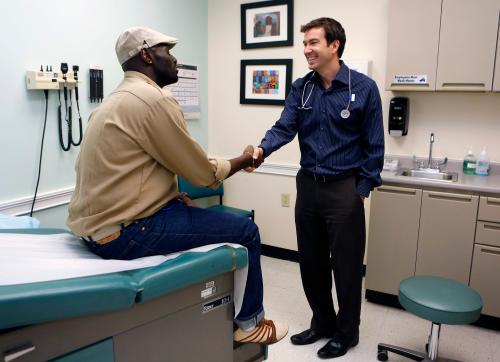Health outcomes are worse in the United States than in other developed nations. Part of the problem is that funding streams for health care are deep but narrow, and are rarely able to cover the cost of non-medical needs such as safe, affordable housing or healthy food despite evidence suggesting these social determinants have a bigger health impact than access to medical care.
Many of the social needs that influence health are guaranteed by law, however vulnerable individuals often face an impossible situation when they require legal assistance in order to gain access to social supports essential for healthy living. Millions of Americans are caught in this trap, with one in six people needing legal assistance in order to be healthy.
In a new report “The law as healer: How paying for Medical-Legal Partnerships (MLP) saves lives and money,” (PDF) Brookings Visiting Fellow Dayna Bowen-Matthew argues that Medical-Legal Partnerships can reduce health care costs and improve the quality of health outcomes.
Recommendations
- More health center should finance MLPs as an “enabling” or “wrap-around” service under section 330 of the Public Health Services Act
- Medicaid managed care organizations should use the Center for Medicare & Medicaid Services’ “in lieu of” financing to pay for MLPs
- Established MLPs should expand their use of bundled payment models that a few partnerships already successfully employ
- Physicians should propose episode payment and condition-based payment models to the PTAC to cover MLP services ordered by eligible professionals
- CMS should add new Medicare quality metrics in medical homes, ACO and ACH payment models to incentivize providers to incorporate MLP services in private managed care contracts
- States should invest invest in long-term public and private financing options
- State and local government agencies should experiment with blending and braiding strategies such as social impact bonds
Read the full report here.






